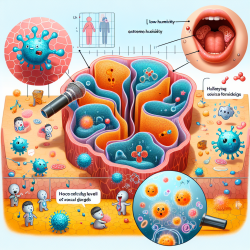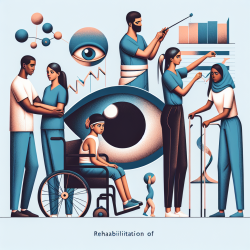Phelan-McDermid Syndrome (PMS) is a rare genetic disorder caused by deletions or mutations in the SHANK3 gene located on chromosome 22q13. This condition is associated with autism spectrum disorder (ASD) and intellectual disability (ID). Despite its rarity, the identification of PMS is expected to rise due to advancements in genetic testing technologies like chromosomal microarray analysis (CMA) and whole exome sequencing. For practitioners, understanding PMS is crucial for providing effective care and improving patient outcomes.
The Role of Genetic Testing
Genetic testing plays a pivotal role in diagnosing PMS. CMA is recommended as a first-tier test for children with ASD or developmental delays. It helps identify deletions at 22q13, which are often de novo but can also be inherited from a parent with a balanced rearrangement. Practitioners should be aware that additional testing, such as fluorescence in situ hybridization (FISH) and sequencing of the SHANK3 gene, may be necessary to confirm the diagnosis and assess recurrence risks within families.
Comprehensive Medical Assessments
A thorough medical assessment is essential for managing PMS effectively. Evaluations should include:
- Dysmorphology Examination: Identifying common physical features such as large fleshy hands, long eyelashes, and bulbous nose.
- Cognitive and Behavioral Assessments: Conducted at specialized centers to evaluate ASD prevalence and guide individualized treatment plans.
- Neurological Examinations: Assessing motor skills, hypotonia, and potential seizure disorders through EEG monitoring.
- Endocrine Evaluations: Monitoring growth patterns and thyroid function to detect abnormalities early.
- Renal and Cardiac Assessments: Screening for congenital defects that may require intervention.
The Importance of Multidisciplinary Care
PMS management requires a multidisciplinary approach involving various specialists such as geneticists, neurologists, endocrinologists, nephrologists, cardiologists, and gastroenterologists. Coordination among these professionals ensures comprehensive care addressing all aspects of the syndrome. Practitioners should facilitate referrals to appropriate specialists early in the diagnostic process.
The Need for Ongoing Research
The complexity of PMS underscores the need for ongoing research to better understand its phenotype-genotype correlations and develop effective treatments. Practitioners are encouraged to stay informed through conferences, publications, and webinars. Engaging in further research can help bridge gaps in knowledge and improve clinical practices.
Your Role as a Practitioner
Your role as a practitioner is vital in advocating for patients with PMS. By understanding the intricacies of this syndrome and implementing research findings into practice, you can significantly impact patient care. Encourage families to participate in support networks like the Phelan-McDermid Syndrome Foundation for additional resources.










